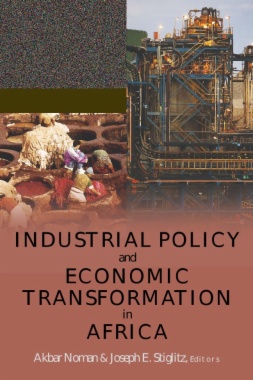The revival of economic growth in Sub-Saharan Africa is all the more welcome for having followed one of the worst economic disasters—a quarter century of economic malaise for most of the region—since the industrial revolution. Six of the world's fastest-growing economies in the first decade of this century were African. Yet only in Ethiopia and Rwanda was growth not based on resources and the rising price of oil. Deindustrialization has yet to be reversed, and progress toward creating a modern economy remains limited.
This book explores the vital role that active government policies can play in transforming African economies. Such policies pertain not just to industry. They traverse all economic sectors, including finance, information technology, and agriculture. These packages of learning, industrial, and technology (LIT) policies aim to bring vigorous and lasting growth to the region. This collection features case studies of LIT policies in action in many parts of the world, examining their risks and rewards and what they mean for Sub-Saharan Africa.
- Table of Contents
- Acronyms
- Acknowledgments
- 1. Introduction and Overview: Economic Transformation and Learning, Industrial, and Technology Policies in Africa, by Akbar Noman and Joseph E. Stiglitz
- 2. Is Industrial Policy Necessary and Feasible in Africa?: Theoretical Considerations and Historical Lessons, by Ha-Joon Chang
- 3. Industrial Strategy and Economic Transformation: Lessons from Five Outstanding Cases, by Akio Hosono
- 4. The Economic Implications of a Comprehensive Approach to Learning on Industrial Policy: The Case of Ethiopia, by Go Shimada
- 5. Review of Industrial Policies in Ethiopia: A Perspective from the Leather and Cut Flower Industries, by Girum Abebe and Florian Schaefer
- 6. The Return of Industrial Policy: (What) Can Africa Learn from Latin America?, by Annalisa Primi
- 7. Can the Financial Sector Deliver Both Growth and Financial Stability in Sub-Saharan Africa?, by Stephany Griffith-Jones with Ewa Karwowski
- 8. Growth Strategies for Africa in a Changing Global Environment: Policy Observations for Sustainable
and Shared Growth, by Danny Leipziger and Shahid Yusuf
- 9. Measuring Policy Performance: Can We Do Better than the World Bank?, by Julia Cagé
- About the Editors
- About the Authors
- Index

